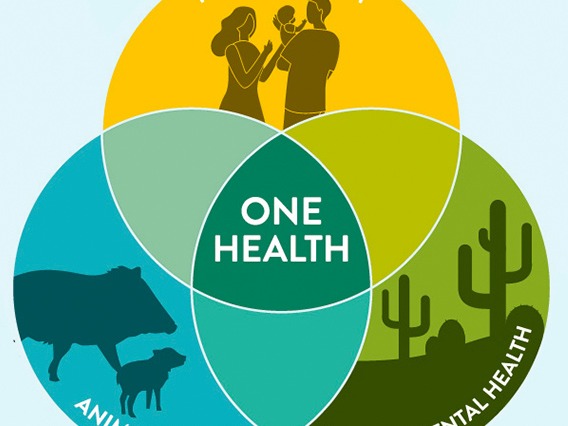Graduate Certificates
The University of Arizona Mel and Enid Zuckerman College of Public Health is committed to serving the public health educational needs of working professionals in the State of Arizona and beyond. In addition to offering curriculum at the undergraduate and graduate levels, we offer a variety of graduate certificate programs. Designed for working professionals and/or those exploring the field of public health, the certificate programs provide skill enhancement for both domestic and international participants who have limited time to pursue a campus-based full graduate degree program.
Downloads:
Certificate Programs - Handbook
Quick Reference Guide for NDS and Certificate Students

Clinical & Translational Research Graduate Certificate
The Clinical & Translational Research Graduate Certificate prepares interprofessional scientists for the complexities of clinical and translational research through high-quality didactic instruction, and mentored collaborative research experiences.

Graduate Certificate in Global Health & Development
The Graduate Certificate in Global Health & Development is a distance-learning program that provides participants the foundation knowledge and skills necessary to function effectively in global health practice, whether at home in a diverse setting, along the border in a bi-cultural environment, or abroad where populations are under-resourced and where health systems are constrained.

Graduate Certificate in Health Administration
The Graduate Certificate in Health Administration offers Tucson or Phoenix-based working health professionals and graduate students an opportunity to advance their health administration training. Upon completion of the certificate program, students will have knowledge and skills in the following areas: strategic planning, budgeting and finance, health care economics and policy, and advanced health care services administration.

Graduate Certificate in Indigenous Health
The Graduate Certificate in Indigenous Health, an online certificate designed for working professionals, focuses on the health and wellbeing of Indigenous Peoples with an emphasis on Indigenous models of public health practice that are rooted in culture, language, identity, place and community history.

Maternal & Child Health Epidemiology Graduate Certificate
Maternal and Child Health (MCH) is the professional and academic field that focuses on the determinants, mechanisms and systems that promote and maintain the health, safety, well-being, and appropriate development of children and their families in communities and societies, in order to enhance the future health and welfare of society and subsequent generation.

Graduate Certificate in One Health
The Graduate Certificate in One Health is a distance learning program that consists of 4 courses (12 units) designed to meet the needs of students and professionals. Coursework focuses on a broader view of the multidisciplinary approaches needed to holistically address the interconnectedness of animals, humans, and the environment and related health impacts.

Graduate Certificate in Public Health
The Graduate Certificate in Public Health is a distance-learning program that offers working professionals a flexible and convenient option for advancing their public health training. The certificate is affiliated with the Master of Public Health (MPH) degree and consists of the five core courses that are required of all MPH graduates.

Graduate Certificate in Public Health Emergency and Epidemic Preparedness
Developed and implemented by public health experts with extensive applied experience in public health emergency and epidemic preparedness/response, the University of Arizona’s Graduate Certificate in Public Health Emergency and Epidemic Preparedness will provide participants with skills needed to support public health response to emergencies, epidemics, and pandemics.

